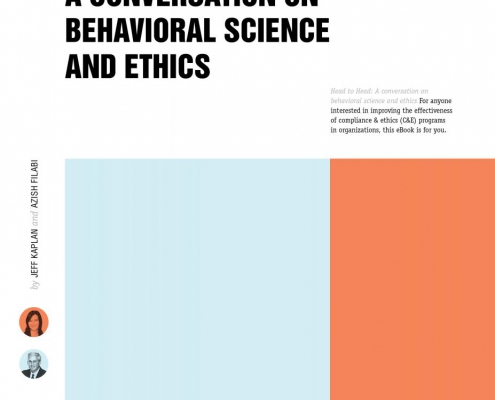
Behavioral Legal Ethics, University of Tennessee, 2017
Course Syllabus, Leadership, Professor, Teaching Ethics
Leading With Values, University of Michigan-Ross School of Business, 2013
Course Syllabus, Leadership, Professor, Teaching Ethics
Designing a Good Life, University of Chicago’s Booth School of Business, 2015
Course Syllabus, Decision Making, Ethics Pays, Fairness, Professor, Teaching Ethics, Trust
Values Based Leadership, Northwestern University-Kellogg School of Management, 2015
Corporate Culture, Course Syllabus, Leadership, Professor, Teaching Ethics
Ethical Leadership in the Global Economy, Boston University, 2016
Course Syllabus, Decision Making, Ethics Pays, Fairness, Professor, Teaching Ethics, Trust
Professional Responsibility, NYU Stern, 2017
Contextual Influences, Course Syllabus, Decision Making, Professor, Teaching Ethics
Company Snapshot: Conscious Capitalism- Core to The Container Store’s Success
Case Study, Corporate Culture, PractitionerThe third of three Company Snapshots, these research-based pieces by guest author Jessica Guo look at aspects of successful companies that can be examined for strategy and information of benefit to both active businesses and the academics that study them. See our first company snapshot examining culture and values at Costco and our second company snapshot looking at how values around sustainability and responsibility drive culture and integrity at Patagonia.

Company Snapshot: Conscious Capitalism- Core to The Container Store’s Success
According to a 2012 study by the global management consulting firm Hay Group, retail stores typically see turnover of 67% in part-time employees. Yet the Container Store, a leading storage and organizational products retailer, boasts an annual store employee turnover rate of only 10%.
The Container Store’s employee satisfaction translates directly into bottom-line success: the company has grown from a founding $35,000 investment in 1978—about $131,000 in today’s currency—to earn over $800 million in net sales in FY 2017. “A good capitalist will see the value of what we’re doing,” co-founder Kip Tindell says. “We would not be as profitable if we did less for our employees and vendors.”

Company Snapshot: “Don’t Buy Our Products” – Ethics at Patagonia
Case Study, Corporate Culture, PractitionerThe second of three Company Snapshots, these research-based pieces by guest author Jessica Guo look at aspects of successful companies that can be examined for strategy and information of benefit to both active businesses and the academics that study them. See our first company snapshot examining culture and values at Costco.

Company Snapshots: “Don’t Buy Our Products” – Ethics at Patagonia
When asked what he thought made a good company, Yvon Chouinard replied with one word: responsibility.
Despite being the founder of a retail consumer brand company Patagonia, Chouinard is also a conservationist who advocates for anti-consumerism. He believes that Patagonia has “made a contract with our customers to make clothing as responsibly as possible.” To that end, Chouinard actively encourages his consumers to “think twice before you buy a product from us. Do you really need it or are you just bored and want to buy something?”

Company Snapshot: At Costco, Culture is King
Case Study, Corporate Culture, PractitionerThe first of three Company Snapshots, these research-based pieces by guest author Jessica Guo look at aspects of successful companies that can be examined for strategy and information of benefit to both active businesses and the academics that study them. Additional Company Snapshots will be published on Mondays for the next two weeks.

Company Snapshots: At Costco, Culture is King
“Culture is not the most important thing in the world. It's the only thing.”
According to Jim Sinegal, founder of retail giant Costco, the company’s culture drives its business strategy. Costco’s success turns on its ability to recognize and respect what Sinegal calls “what we stand for in the customer's eyes, and what we mean to all of the stakeholders in our business.” Those core tenets include putting the customer first, rewarding its employees, and valuing its suppliers.

